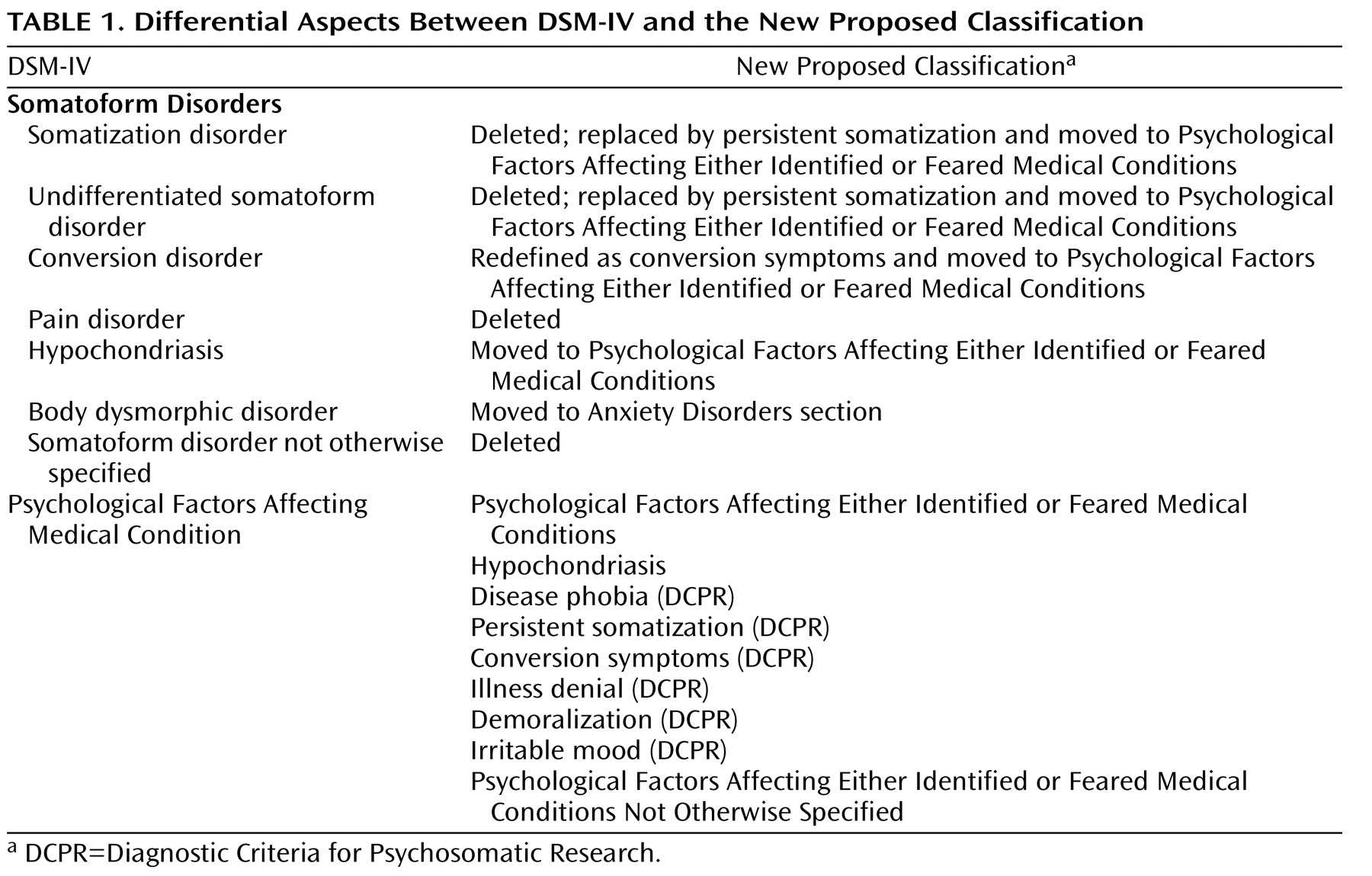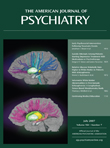Somatoform disorders have been the source of much criticism since their introduction in DSM-III. Their overlap with anxiety and depression as well as the uncertainty of etiology in the patient’s somatic complaints makes such diagnoses less useful to clinicians and commonly upsetting to patients. Their most characteristic syndromes, such as somatization disorder, have very low prevalence and can be used only when somatic symptoms are regarded as “psychogenic”
(1) . When medical disorders are present, DSM allows use of the category “psychological factors affecting medical condition.” The essential features of the diagnosis are the presence of a general medical condition and of psychological factors adversely affecting its course and treatment or constituting health risks and stress-related physiological responses. This poorly defined diagnostic categorization had virtually no impact on clinical practice.
We propose to change this category into “psychological factors affecting either identified or feared medical conditions” with clinical specifiers as subclassification headings. By expanding medical conditions to both “identified” and “feared,” we can use clinical specifications regardless of the functional/organic dichotomy or axis I or II comorbidity, such as in a very anxious patient after myocardial infarction or in a patient with fibromyalgia who resents any suggestion of psychosomatic etiology
(2) . This eliminates the need of a somatoform disorders section
(1) . The clinical specifiers that we propose are largely based on the Diagnostic Criteria for Psychosomatic Research. These criteria were developed by an international group of investigators
(3) and are highly prevalent in medical populations
(4,
5) .
The clinical specifiers, listed in
Table 1, include a DSM diagnosis of hypochondriasis and its highly prevalent variant, disease phobia
(4) . Both DSM somatization disorder and undifferentiated somatoform disorder are replaced by the Diagnostic Criteria for Psychosomatic Research criteria of persistent somatization, conceptualized as a clustering of functional symptoms involving different organ systems
(6) . Conversion may be redefined according to Engel’s stringent criteria
(7), involving features such as ambivalence, histrionic personality, and precipitation of symptoms by psychological stress of which the patient is unaware. Diagnostic Criteria for Psychosomatic Research categories of illness denial, demoralization, and irritable mood offer further specifiers.
Persistent denial of having a medical disorder and the need of treatment (e.g., lack of compliance, delayed seeking of medical attention) frequently occurs in the medical setting
(4,
8) . Demoralization connotes the patient’s consciousness of having failed to meet his or her own expectations (or those of others), with feelings of helplessness, hopelessness, or giving up
(3) . It can be found in almost a third of medical patients and can be differentiated from depressive illness
(9) . Irritable mood, which may be experienced as brief episodes or be prolonged and generalized
(3), has also been associated with the course of several medical disorders and may carry important clinical implications
(10) .
In summary, the expansion to“psychological factors affecting either identified or feared medical conditions” is supported by a growing body of research
(2,
4,
5), may offer a solution to the inadequacies of current classification of somatoform disorders without losing or misplacing the clinical syndromes that inspired it, and is in line with psychosomatic medicine as a recognized subspecialty.


